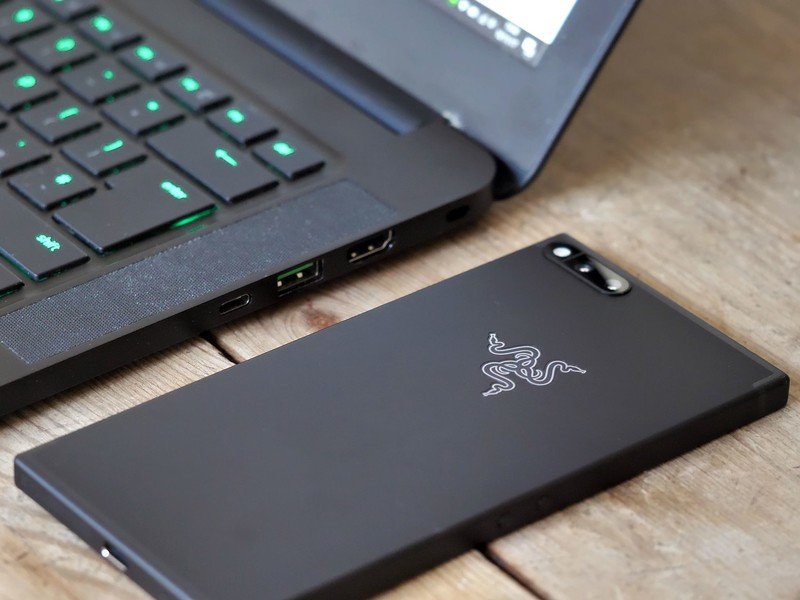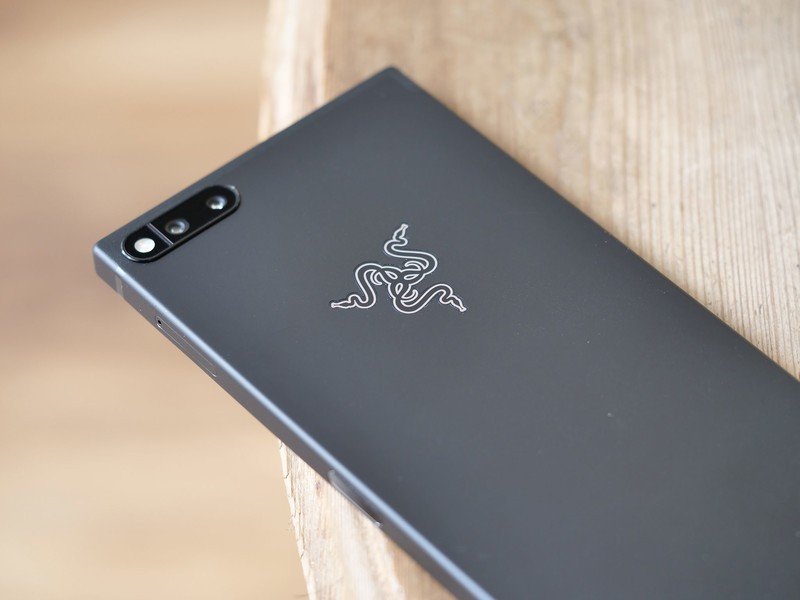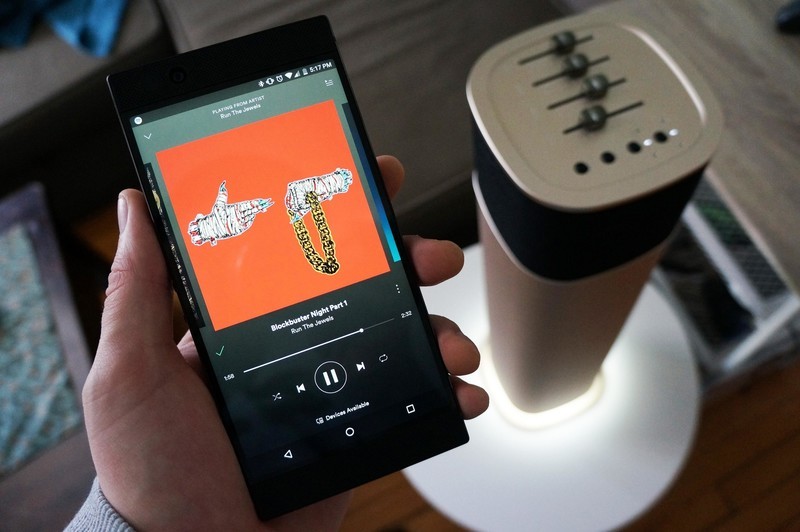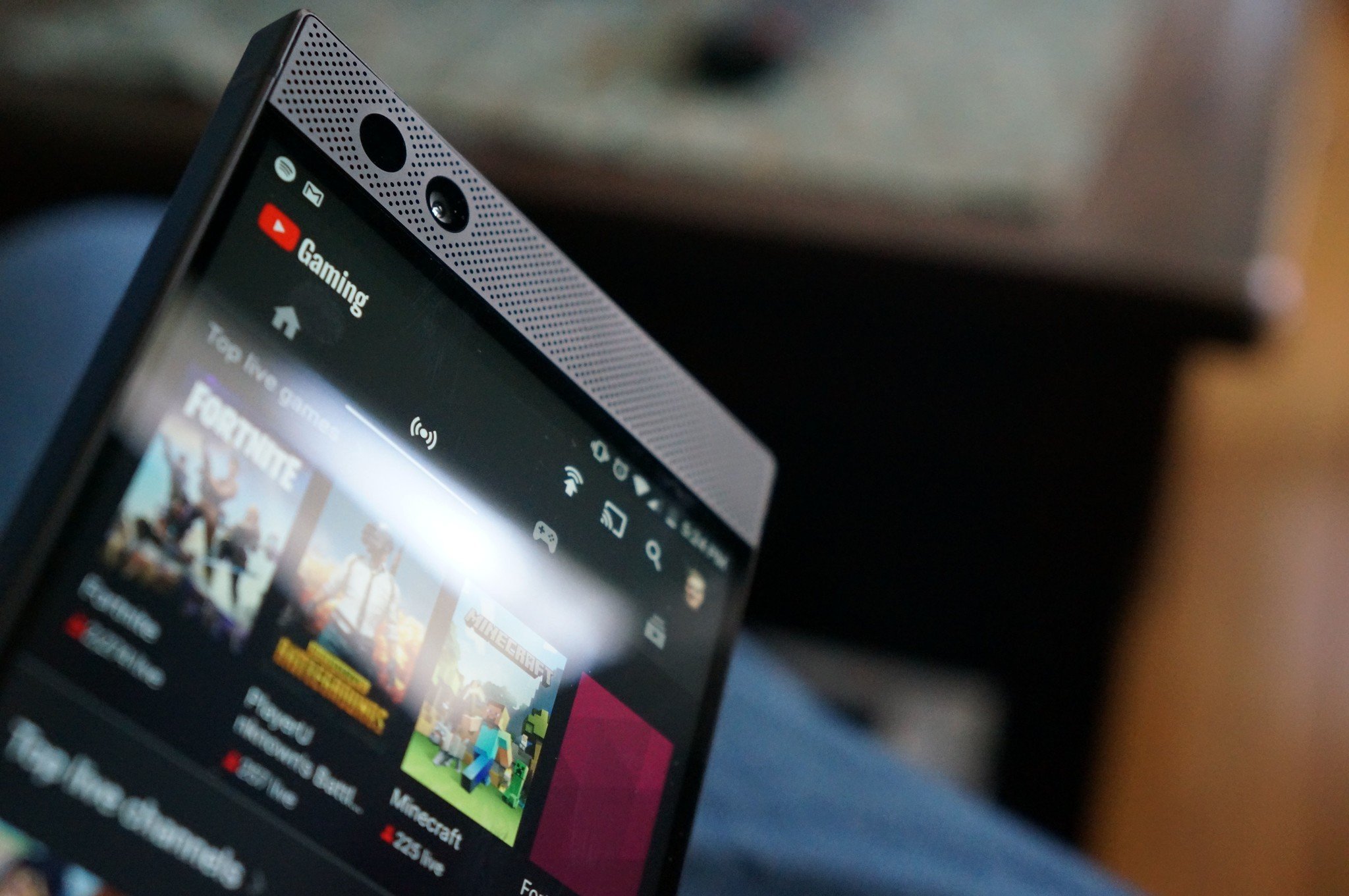You have to commend Razer for going against the industry trends and making some really bold design choices for its first smartphone, the Razer Phone. Okay, I guess you don't have to commend them — but I will.
Razer calls the Razer Phone the "smartphone for gamers" and also "the ultimate smartphone for mobile entertainment". And I know that those are marketing buzzwords but damn if it hasn't mostly lived up to those lofty claims. As the resident gaming guy around these parts and also a serial streamer of media on my phone, I was really eager to see what the Razer Phone brings to the table.
In spite of some of the obvious shortcomings as mentioned by Alex Dobie our main review — namely the pathetic camera performance and lack of water resistance — the Razer Phone's strengths are impressive. In fact, they may have honestly changed the value I place on specific smartphone design and features — and that goes far beyond the buttery smoothness of the 120Hz UltraMotion display (although more of that, please).
But seriously, have you seen the specs on this thing?

It's important to say right off the bat that the overall performance of the Razer Phone is simply outstanding thanks to Razer cramming as much top-end hardware into the chassis as possible.
The Snapdragon 835 chipset and 8GB of RAM allow you to play the most resource-heavy games, like Vainglory or PUBG Mobile, without any noticeable slowdown even in those moments when the screen is cluttered with enemies and action. This phone should be fairly futureproof for whichever direction mobile gaming decides to head in (excluding mobile VR) which at this point seems to be focused on porting over more PC and console experiences to mobile. With the Razer Phone in hand, I say bring it on!
Coupled with the massive 4,000mAh battery and that PC-quality display you get the best mobile experience for stream hours of Netflix or YouTube without reaching for your charging brick. When it is time to charge, this phone charges up real quick thanks to the support for the latest Qualcomm QuickCharge 4+ technology. Despite having never owned a Razer product in my life, I still feel like this phone was designed for someone like me with similar needs for streaming and gaming and I acknowledge and appreciate it.
- More: Razer Phone specs
Crazy good audio
Maybe I'm in the minority here, but I tend to use the built-in speakers on my phones as much as I use headphones or Bluetooth speakers. Whether I'm hanging out with friends and trying to share a hilarious YouTube video in a noisy space or wanting to resume watching Netflix while I go about cooking dinner in the kitchen, I've realized that I rely on my phone's speakers for so much more than just notification blips.
In an era where smartphone companies are trying maximize the screen-to-body ratio on devices, Razer took off in the other direction an added a combined inch to the top and bottom of the display to create the best damn smartphone speakers I've ever experienced. Far from being a compromise, I've found the speaker layout (coupled with the Dolby Atmos audio support) delivers the best sound from a smartphone while also addressing the issue of your hand muffling the sound when using phones with bottom-firing speakers. Furthermore, the speakers also give you a bit of a buffer between your palms and the screen which helps cut down on accidental touches along the edge of the display.
In an era when companies are trying to maximize the screen-to-body ratio, Razer took off in the other direction and created the best damn smartphone speakers I've ever experienced.
Another common sticking point for newer phones is the removal of the headphone jack, but Razer managed to compensate for that by including a USB-C to 3.5mm adapter with a 24-bit THX certified DAC inside. I actually had to get some second opinions when I tested out the included dongle because I wasn't sure if the audio was as impressive as I was imagining or what, but everyone I showed it to was just as blown away by it as I was. I'm also living a mostly Bluetooth life when it comes to speakers and headphones as it is, so while it certainly sucks to carry a dongle around for those times I want to use wired headphones It's not as much of a deal breaker for me as it might have been just a few years ago.
No curves, no problems

Call me a contrarian but I'm one of those folks who constantly gripes about curved displays on smartphones. Ever since Samsung set the industry trend with the Samsung Galaxy S6, it's all we typically see from flagship devices these days.
Sure, I'll agree that they look really pretty in person and can feel smooth and nice in your hand, but it still a mostly cosmetic design choice. I don't find that it adds anything substantial to the experience of using the smartphone beyond added anxiety about replacement costs if it slams against the ground.
I don't mind bezels around the display if they're used effectively as is the case here.
That's why I really appreciate the decision Razer made to not follow those trends and deliver a different option for consumers. I don't mind bezels around the display if they're used effectively as is the case here. Because the screen doesn't go edge-to-edge and is built around an aluminum frame, I've been less concerned about screen damage nor do I feel obligated to slap a case on the Razer Phone.
Like I mentioned above, the front-facing speakers sound great and also offer a bit of a buffer between your hands and the screen when playing a game in landscape mode. With bigger and better games coming out for Android these days, I want a phone that features more practical features rather than cosmetic ones to make the overall experience better, and I think Razer has gotten off to a good start here offering something different from its competitors.
Should you consider buying the Razer Phone in 2018?

The bottom line here is that the Razer is asking $700 for a phone that offers supreme performance in some areas while falling short in others. Depending on how you primarily use your phone will be key in determining whether a ridiculously smooth (but occasionally dim) display backed by top-end performance specs can outweigh a lackluster (but functional) camera setup. Whether fantastic, front-facing speakers offer more value to you than a seamless display with no bezels.
We're also still waiting for the Razer Phone to get Android Oreo which should improve the overall experience, but we won't know for sure until it arrives. Razer released a major software update in January that shows that Razer is committed to supporting the Razer Phone and improving the experience — yet it still has a ways to go to match the overall user experience.
Having said all that, I'm still really impressed by the Razer Phone, but that's because I spend a good majority of my phone time playing games and consuming entertainment. I never realized how much I valued a higher refresh rate or proper front-facing speakers on a phone, and given my obsession for mobile gaming, I could see the phone specs holding up pretty well over the years.
It's definitely a phone that you need to experience firsthand before deciding if it's right for you. If the 120Hz refresh rate and booming audio features don't instantly turn you on, then maybe it just wasn't meant to be.
Marc Lagace was an Apps and Games Editor at Android Central between 2016 and 2020. You can reach out to him on Twitter [@spacelagace.


